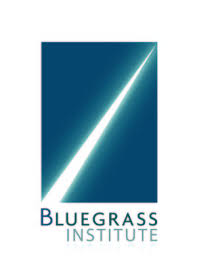Bluegrass Institute releases educator-written debate on charter schools
The Bluegrass Institute for Public Policy Solutions
www.BIPPS.org
Monday, July 28, 2014, 10 p.m. — Kentucky’s leading free-market think tank has released a completely written debate on school choice and charter schools featuring educators arguing both sides of the charter school dbate.
 The Bluegrass Institute for Public Policy Solutions released the third debate in its “Free to Learn” series on Monday that offers an in-depth written debate about the pros and cons in school choice.
The Bluegrass Institute for Public Policy Solutions released the third debate in its “Free to Learn” series on Monday that offers an in-depth written debate about the pros and cons in school choice.
University of Kentucky education professor Wayne Lewis says that while public charter schools may not solve all of the Bluegrass State’s education troubles, “parents of children trapped in schools that don’t meet their learning needs” deserve the options that quality charter-school legislation would provide.
Lewis, Ph.D., who has advocated for public charter schools throughout the Bluegrass Institute’s Free to Learn debate series – including the third and final installment, which is a fully written, readable debate released online today and available here – says the fact that 42 other states and the District of Columbia now have charter-school laws offers the commonwealth’s policymakers an ideal opportunity to create stellar legislation.
“Kentucky is in an optimal position to take those lessons and incorporate them into what could be a national model for charter school legislation,” writes Lewis, who also chairs the Kentucky Charter Schools Association.
However, Martin Solomon, Ph.D., Lewis’ debate opponent, argues that charter schools “siphon off scarce funds from public schools and thereby weaken the public school system.”
Solomon, a retired University of Kentucky professor of business and economics, accuses supporters of overstating charter schools’ academic performance while ignoring numerous scandals involving charter-school officials in recent years.
“Corruption is rampant nationally regarding charter schools,” Solomon says in his closing statement. “Even with annual audits, these school operators can divert public money to private purposes and engage in fraudulent purchasing and real estate deals without easily being caught.”
But Lewis challenges Solomon on his notion that charter schools are not true public schools and urges him not to dismiss out of hand the potential that charter schools offer the Bluegrass State, especially considering that many of the 2.3 million students enrolled in the nation’s 6,000 charters previously were in danger of falling through the cracks in traditional public schools.
“Will passing charter school legislation fix all that ails education in Kentucky? Of course not,” he says. “But passing a strong charter school law will absolutely result in the creation of additional high quality public-school options for children currently trapped in schools that none of us would want our children to attend.”
Lewis, who authored “The Politics of Parent Choice in Public Education: The Choice Movement in North Carolina and the United States,” invites charter-school opponents within the state to learn from the best and worst of different states’ charter-school laws and “craft the best charter school legislation we can for Kentucky.”
However, he doubts that opponents will join him and other public charter-school supporters at the table “because they don’t want to openly talk about provisions of the proposed law that really bother them.”
A portion of the debate deals directly with Rep. Brad Montell’s House Bill 85, which was filed during the 2014 session of the Kentucky General Assembly. Lewis alludes to the strengths and safeguards in House Bill 85 while Solomon points out what he sees as a variety of weaknesses and unreasonable aspects of the legislation.
Montell has filed public charter-school legislation for several years in a row.
This final “Free to Learn” debate is a written, readable and non-technical forum designed to educate Kentuckians about public charter schools, including how they operate and are held accountable. The debate was conducted entirely “offline” and published in its entirety today.
“The debate itself is only the first part of this online event; it now will continue in the social-media universe,” says Bluegrass Institute president Jim Waters, who serves as the event’s moderator and editor. “Kentuckians want to know more about this issue, which is why we are pleased to provide this important and interesting online event as part of our ongoing effort to educate and engage citizens and policymakers on this issue.”
This forum continues on the Bluegrass Institute Policy Blog, Facebook site and in the Twitter sphere @BIPPS.
-30-






